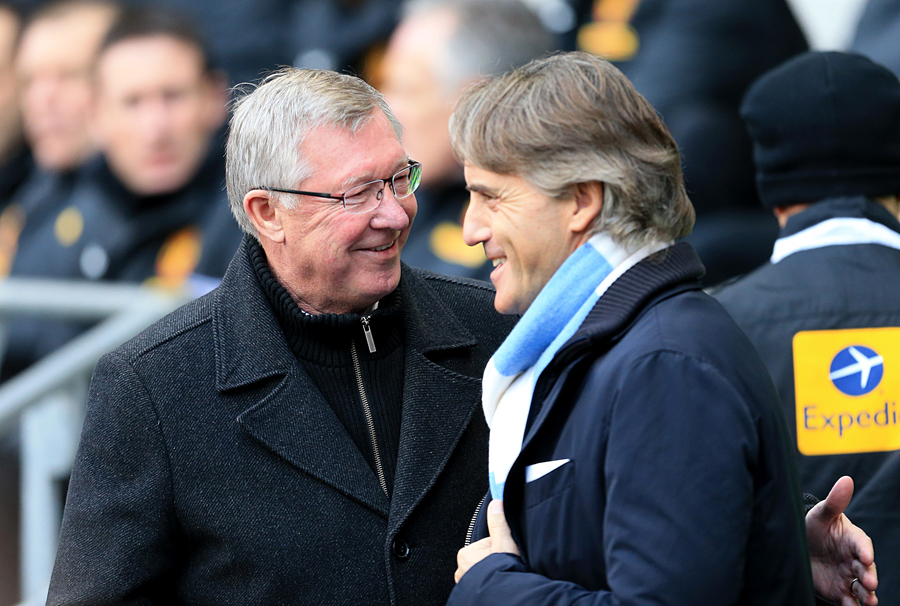- Premier League
England's obsession with managerial masterminds

So here is a quiz question: what have 18 men done at Juventus, 16 at Real Madrid and just three at Manchester United? The clue, if one is needed, lies in the last detail. The only managers to lead United to a domestic league title are Ernest Mangnall, Sir Matt Busby and Sir Alex Ferguson. They are hugely outnumbered by their counterparts at the most successful clubs in the history of Serie A and La Liga respectively.
It helps explain the cult of the manager in English football. For many a year, the Brits could comment on the hire-and-fire culture of continental football with an air of superiority. Now it has infiltrated English football - albeit not at Old Trafford, Emirates Stadium or Goodison Park - without affecting one essential assumption: regardless of playing personnel, a team's fortunes are dictated by the manager. Defeats are blamed on them, yes, but wins are also attributed to them. The players are the subplot.
The notion that a managerial mastermind is required has become entrenched in England over decades of charismatic figures, often equipped with dictatorial powers. The theory that a head coach is simply one cog in the chain has been anathema. The British distrust of directors of football is such that they have to be camouflaged by use of alternative titles, from sporting director to football administrator and, strangest of all, global advisor. Their input is often seen as insidious, undermining the club's rightful ruler.
In other countries, those in positions of power sometimes seem to think the manager was fortunate enough to be in the right place at the right time. Dispense with them, goes a theory rooted in their history, and someone else will win. Real fired Jupp Heynckes after winning the Champions League and parted company with Fabio Capello and Vicente del Bosque when they had clinched the Spanish title. It would not happen in England. Even Chelsea reluctantly gave Roberto Di Matteo a new contract and waited six months after becoming European champions before sacking him.
Chelsea can be presented as the exception, the club who prove that continuity on the pitch and in the boardroom matter rather more than the same face in the dugout. But for institutionalised instability, they probably would not be Champions League winners. Their seven FA Cups have come in the reigns of seven different managers. And yet the reality is that, of Jose Mourinho's seven successors, only one, Carlo Ancelotti, has won the Premier League. Only one other, Avram Grant, has even come close.
So, in the post-war era, only one club has ever really sustained success, regardless of the manager. Liverpool's seamless transition from Bill Shankly to Bob Paisley to Joe Fagan and finally Kenny Dalglish stands out for the sheer rarity value. The irony is that, while they won whoever was picking the team, the cult of the manager is as strong at Anfield as it is anywhere else. The wisecracking father of a footballing dynasty, Shankly remains revered.

Liverpool actually reached greater heights after his resignation. The other iconoclasts, however, were unrivalled before or after their time. Think of Brian Clough at Nottingham Forest, his arch-enemy Don Revie for Leeds, Stan Cullis with Wolves or Sir Alf Ramsey at the helm of both Ipswich and England. Occasionally a replacement temporarily staves off decline with his predecessor's players - Dave Mackay won the title with Clough's Derby team and Tony Barton the European Cup with Ron Saunders' Aston Villa side - but in both cases the subsequent descent to mediocrity was swift and unpleasant.
While entire clubs have been transformed by one man, the trend is that golden ages have only encompassed one reign. At Manchester City, it was Joe Mercer's six-year spell in charge, from 1965 to 1971. None of the 20 men who followed, and Malcolm Allison had two stints, won the title; only Tony Book won anything. So those who fail to understand why City supporters have not been baying for Roberto Mancini's blood this season fail to understand City. The Italian has enjoyed resources that were not granted to many of the others but, unlike most of them, did not soon appear a false prophet.
While Arsenal have not spent so long in the wilderness, the suggestion they would be better off without Arsene Wenger, even after an eight-year trophy drought, runs contrary to the idea that the manager is the omnipotent architect of everything good at the club and that there is no guarantee anyone else will do as well again. Further down the leagues, look at Leicester after Martin O'Neill, Charlton following Alan Curbishley's departure or, perhaps, Blackpool since Ian Holloway left. Perhaps, in time, the same will be said of Tony Pulis' days at Stoke.
Certainly, for two decades, Manchester United laboured in the shadow of their first managerial knight. They went 26 years without winning the league, the majority of them under managers who were damned by comparison with Busby. Life after him brought relegation and humiliation and, while the framework of the game has changed so much that another demotion is impossible, there is the sense that their most important title of the future is the first they win after Ferguson's eventual retirement. The longer they wait, the more the statue of the Scot and the stand named after him will figure in the discourse. The players, whoever they are, will only be deemed part of the problem. The focus will be on the figure on the touchline. This is England, the spiritual home of the all-powerful manager.

